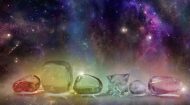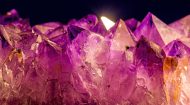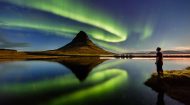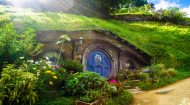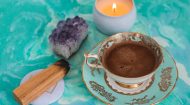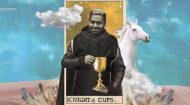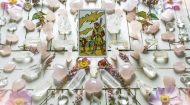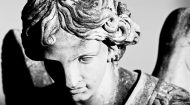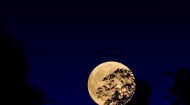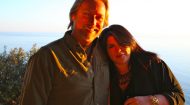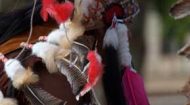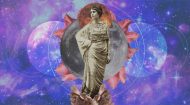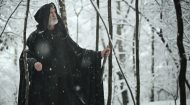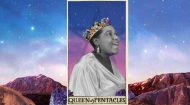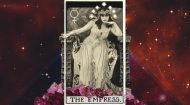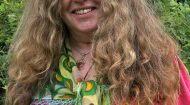What is Shamanism?

Shamanism seems to be everywhere these days: in mainstream newspapers, on the shelves of conventional book sellers and even on Radio 4. However despite, or maybe because of, the increasing media attention it’s not always easy to discover what shamanism really is and what it can offer us in the 21st century.
Ask any passer-by on any street to describe shamanism and the result will probably be blank stares. Most people are surprised to learn that shamanism is not a religion but the oldest spiritual and problem-solving technology on the planet. Even more surprising is the discovery that it’s the precursor to most major world religions, including the Judaeo-Christian and Buddhist traditions, and that it has been practised on every inhabited continent on earth for at least 40,000 years and possibly very much longer.
Historically, shamanism was a significant survival tool of prehistoric humans. Our hunter-gatherer forbears decorated the stone walls of caves and cliffs around the world with carved and painted images drawn directly from shamanic experience. We no longer live in caves or in very small communities whose members are all known to us. Most of us live far longer, healthier lives than our ancient ancestors, but our brains, that part of us capable of fearing the dark and asking for help from things unseen, hasn’t changed in almost a quarter of a million years. What made the uncertain lives of prehistoric people easier still works today because, although the world may have changed, fundamentally we have not.
Ask what a shaman is and the question may evoke a few words about Native American ‘medicine men’ or perhaps the word ‘witchdoctor’. In fact, what a shaman is and does is simply explained. In the Siberian Tungus language which produced the word, ‘shaman’ means ‘the one who sees’ and refers to a person capable of making a ‘journey’ to alternate realities while in an altered state of consciousness in order to meet and work with spirit helpers.
What the shaman ‘sees’, what she realises, during this experience of meeting spirits is that there is no separation between anything that is: no separation between me writing and you reading these words, between a dog and cat, between life and death, between this apparently material reality and the non-material realities of the spirit worlds.
This idea of ‘oneness’ is common currency in contemporary culture and increasingly given credence by certain quantum physicists working with sub atomic theory, though of course it is a predominantly physical, rather than a spiritual, oneness that such scientists are attempting to describe. However, where most of us can only think about the notion of ‘oneness’, shaman’s actually live it through the experience of the shamanic ‘journey’ and direct, personal interaction with spirit.
Dr. Zoë Brân
Email [email protected].
Blog www.shaman.uk.net
Website www.shaman.uk.com
 Dr. Zoë Brân has worked with creativity for fifteen years and is the author of eight books, which include travel literature, guides to sexuality, and fiction. Zoë was a Writer in Residence at London’s University of the Arts from 2004-2008 and lectured in both Creative Thinking and Travel Writing at City University in London. As a travel writer and journalist Zoë travelled extensively, focussing on troubled areas of the world such as Burma, Bosnia and most recently, Cuba. She has been a speaker, teacher and presenter at conferences, academic institutions, charitable organisations, companies and businesses and has worked with media on topics as diverse as AIDS – the subject of her doctorate – sexual behaviour, Vietnam and shamanism. She has appeared on BBC TV and national and local radio, including ‘Panorama’ and ‘Woman’s Hour’. Currently director of Shaman UK, Zoë has been involved with Core Shamanism since 1998 and is one of the UK’s leading practitioner/educators. She offers one-to-one shamanic counselling and healing and leads shamanic seminars and workshops on a range of subjects, including: Sex and Gender, Death, Soul Retrieval. Her weblog is among Europe’s foremost resources for contemporary shamanic practice and has a worldwide readership. Zoë lives in London with her lurcher, Arlu.
Dr. Zoë Brân has worked with creativity for fifteen years and is the author of eight books, which include travel literature, guides to sexuality, and fiction. Zoë was a Writer in Residence at London’s University of the Arts from 2004-2008 and lectured in both Creative Thinking and Travel Writing at City University in London. As a travel writer and journalist Zoë travelled extensively, focussing on troubled areas of the world such as Burma, Bosnia and most recently, Cuba. She has been a speaker, teacher and presenter at conferences, academic institutions, charitable organisations, companies and businesses and has worked with media on topics as diverse as AIDS – the subject of her doctorate – sexual behaviour, Vietnam and shamanism. She has appeared on BBC TV and national and local radio, including ‘Panorama’ and ‘Woman’s Hour’. Currently director of Shaman UK, Zoë has been involved with Core Shamanism since 1998 and is one of the UK’s leading practitioner/educators. She offers one-to-one shamanic counselling and healing and leads shamanic seminars and workshops on a range of subjects, including: Sex and Gender, Death, Soul Retrieval. Her weblog is among Europe’s foremost resources for contemporary shamanic practice and has a worldwide readership. Zoë lives in London with her lurcher, Arlu.
today's featured reader
book a reading with your favourite psychic
Our live psychics calls cost Calls recorded, 18+ with bill payers permission. Entertainment SP www.inveroak.com. . Terms and conditions apply
Credit card readings:
Calls recorded, 18+ with bill payers permission. Entertainment SP www.inveroak.com. . Terms and conditions.
My New Tarot Deck
I’ve been creating my Knight-Waite tarot deck for three years.
It has been such a labour of love, I can’t wait to unleash it!
It launched in 2023, but why not take a little sneak peek at the cards below?
We have no affiliation whatsoever with the Rider-Waite Tarot Deck, the rights in which are owned and/or controlled by the Penguin Random House Group.
Any similarity in trade names is coincidental only: we are not licensed by, endorsed by, or in any other way connected with Rider-Waite,
the Rider-Waite Tarot Deck, or the Penguin Random House Group.










